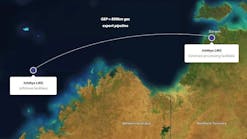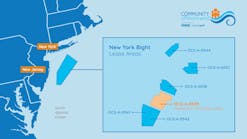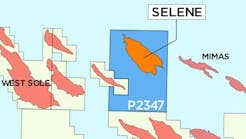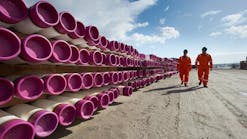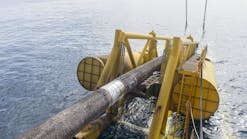Offshore staff
(Asia-Pacific) - Timor-Leste's Prime Minister Mari Alkatiri assured global oil and gas investors on November 17 of significant hydrocarbon potential in the Timor Sea and his government's competitive and transparent legal and contractual regime for developing the resouces.
"Companies that brought their capital, technology and experience in human resource development to Timor-Leste would find doing business a rewarding experience," Alkatiri told a two-day workshop on the country's first round of bidding for concessions in the Timor Sea.
Welcoming more than 70 executives to the workshop, he pledged a high standard of professionalism and dedication to companies participating in the bidding round.
The bidding round area is under Timor-Leste's exclusive jurisdiction and is distinct from the area of overlapping claims that has been the subject of talks between Timor-Leste and Australia.
"Our willingness to engage in good faith negotiations to resolve this dispute is a mark of the commitment and determination of my government to develop this nation. I can inform you today that I believe this process can be concluded in one to two months," he said in reference to the overlapping claim area.
The premier pointed out that the Greater Sunrise field development has been the focus of these talks. "I reaffirm my belief and our expert advice that the best development model for this field is to build a pipeline to feed gas into an LNG processing plant in Timor-Leste."
The field lies just 150 km from the Timor-Leste coastline compared with almost 300 km from Australia.
He pointed out that building the LNG plant would play a dynamic role in the development of the Timor-Leste economy.
"We have already seen how processing Timor Sea gas in Darwin has spurred economic growth. The LNG plant has acted as a magnet for other industrial development," Alkatiri said.
The technical conference, attended by executives from more than 20 companies, is aimed at providing companies with a more intensive explanation of the Timor Sea's geology and the regime developed by the government for the exploitation of onshore and offshore petroleum resources.
Bayu-Undan is the most significant petroleum discovery so far in the Timor Sea Treaty area, known as the Joint Petroleum Development Area (JPDA).
The Bayu-Undan field may contain reserves of 400 MMbbl of condensate (light oil) and liquid petroleum gas (LPG), and 3.4 tcf of gas. The reserves have an estimated value of US$6-7 billion.
The Bayu-Undan field is operated by ConocoPhillips (formerly Phillips Petroleum). ConocoPhillips' partners in the Bayu-Undan development are petroleum companies Eni, Emet, Inpex, Petroz and Santos.
The JPDA comes under a parallel regime which was developed with the Australian government.
The government opened bidding in September on 11 blocks in Timor-Leste's exclusive maritime area.
Companies must purchase a 2D seismic data package in order to bid, with their bids to be submitted by March 15, 2006. The government will announce the successful bids for the 11 blocks in mid-June, according to a statement from the Timor-Leste government.
The Timor Sea Designated Authority has also opened bidding on four blocks in the JPDA, which is a known hydrocarbon province.
11/17/05
